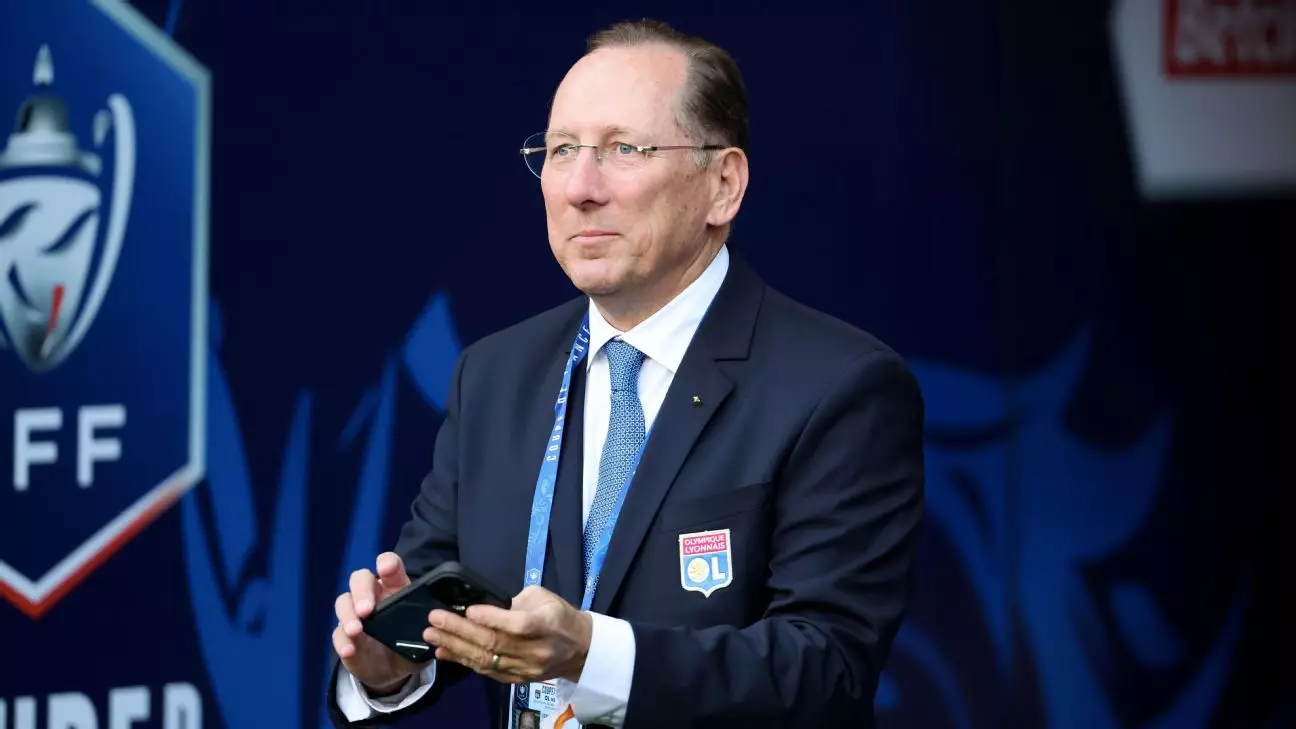John Textor, the American businessman behind the Eagle Football Group, recently revealed a significant shift in his involvement with Olympique Lyonnais (Lyon), the storied French football club facing relegation to Ligue 2. This decision comes after Lyon’s demotion was confirmed by the French financial regulatory body, the DNCG, following concerns over financial irregularities. Textor’s admission that he struggled with the intricacies and politics of French football governance is both candid and telling. It underscores the stark contrast between managing a football club on the field and navigating the administrative labyrinth off it, particularly in a European market that operates under elaborate regulatory frameworks often unfamiliar to foreign investors.
Financial Discipline vs. Sporting Ambition
Lyon’s relegation due to financial reasons rather than purely sporting performance brings to light an uncomfortable truth about modern football: the game’s business side can be just as decisive as its on-pitch results. Textor maintained that the club remains financially well-capitalized, emphasizing their strong liquidity and recent UEFA financial sustainability approvals. Yet, this doesn’t mitigate the fundamental issues highlighted by the DNCG, which focused on regulatory compliance rather than the club’s cash reserves per se. Textor’s recognition that certain “specific elements” of his financial strategy in France “disappointed the governing bodies” reveals a disconnect between his American capitalist approach and the nuanced, sometimes rigid, European financial oversight. It’s a reminder that successful ownership isn’t solely about injecting capital but about aligning with the unique cultural and regulatory environments of each league.
Reflecting on Multinational Ownership Complexities
Textor’s portfolio extends beyond Lyon—he also controls Brazil’s Botafogo and recently divested his partial ownership of Crystal Palace in England. His acknowledgment that he planned to reallocate his focus, devoting more time to Botafogo and Eagle Football Group’s global operations, signals a strategic recalibration. This decision is admirable in its self-awareness but also exposes a flaw common among global football investors—the challenge of maintaining effective leadership across multiple continents and football cultures simultaneously. Owning clubs in different countries isn’t just a footballing expedition; it’s a relentless test of diplomacy, local knowledge, and adaptability. Textor’s experience demonstrates how even substantial financial backing can falter without a deep understanding and respect for the governance frameworks unique to each footballing nation.
The Larger Question: Can Foreign Investors Truly Thrive in European Football?
Textor’s struggles in France provoke broader questions about the role of foreign investors in European clubs. The entry of global capital is undoubtedly crucial for the growth and modernization of football, yet not all markets respond equally to external ownership styles. French football, with its stringent financial control mechanisms, contrasts with more commercially liberal leagues like England’s Premier League, where spending power often meets fewer regulatory hurdles. Textor’s experience suggests that foreign owners must balance ambition with compliance and cultural integration—something he admits to having underestimated. Furthermore, his candid reflection about “not being so good at the politics of France” reveals a profound humility but also highlights the steep learning curve involved in managing legacy clubs that are deeply embedded in national traditions and bureaucracy.
Looking Forward: Strategic Reorientations and New Opportunities
Despite the turbulence, Textor is planning forward. He hinted at exploring new acquisition opportunities in the UK to replenish his presence there, replacing Crystal Palace with a new partner club. This is an intriguing pivot that suggests he still believes in multi-club ownership as a model, but perhaps with a refined strategy. The Eagle Football Group’s collaborative approach—leveraging synergies between clubs—has potential, but must be executed with greater sensitivity to local conditions to avoid repeated pitfalls. This evolving strategy could serve as a blueprint for other transnational football investors striving to strike a balance between global ambition and localized governance.
John Textor’s story at Lyon is a cautionary yet hopeful tale of the complexities in modern football ownership. It illustrates the imperative for owners to blend financial muscle with political acumen and cultural intelligence. In the end, investment success in football demands not just capital but a deep respect for the game’s diverse regulatory and social landscapes—a lesson Textor appears to be learning the hard way.

